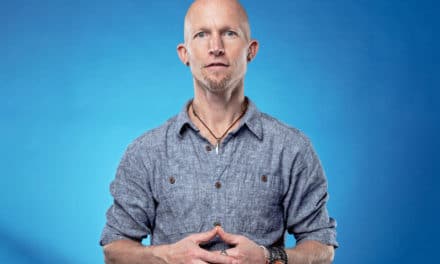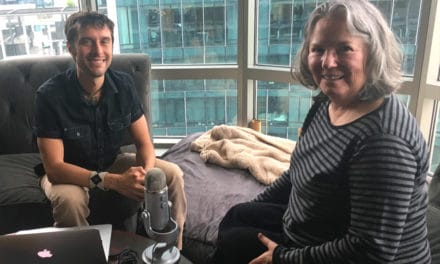
The Global Ibogaine Conference, open to the public for the first time in its history, will be held March 14 – 16, 2016, in Tepoztlan, Mexico.
Ask Jonathan Dickinson about his time traveling to Gabon to participate in a traditional Bwiti iboga initiation, and he describes it as an extremely, personally important experience: “It gets planted really deeply in your soul….and unfolds for a long time afterward. There’s something fundamental that shifts, and if everything goes well, something important gets revealed about your path and why you’re here, something that helps to shape the rest of your walk.”
Today, in the second installment of our podcast series, we talk about this and more with Jonathan Dickinson, the Executive Director of the Global Ibogaine Therapy Alliance (GITA), a not-for-profit organization that supports the therapeutic and sacramental use of ibogaine as well as research, education, and advocacy about the medicinal plant’s benefits as an addiction interrupter and beyond. (Listen to our first podcast with Rick Doblin, founder of MAPS.)
If you’ve been reading this blog for a while, you may have seen our past interview with Jonathan about his start with GITA and ibogaine. In today’s podcast, he speaks with Psychedelic Times founder Joe Mattia on topics spanning iboga conservation and Bwiti culture, where iboga fits into current addiction treatment paradigms, and the future of addiction treatment in Vermont and the US. Jonathan also shares some of the highlights of the upcoming Global Ibogaine Conference — the first conference in GITA’s history open to the public — which will be held in Tepoztlan, Mexico, from March 14 – 16, 2016.
You can listen to the full podcast here:
You can also stream this podcast on Libsyn or iTunes, and download it here. For those who aren’t able to listen to the entire podcast, here are some key takeaways from the interview, which are further outlined in show notes below.
What Is GITA?
GITA began informally as a loosely organized conference put together by a few iboga providers and professionals, including ibogaine therapy pioneer Howard Lotsof. These were providers who had gone through iboga and ibogaine healing and wanted to provide it for others. They saw how vocal advocacy in the ‘80s and ‘90s persuaded the National Institute on Drug Abuse to fund early clinical trials, but after they stopped trials with ibogaine, a medical subculture arose that culminated in the formation of GITA.
These days, ibogaine and iboga have gained interest in the public eye, intersecting with the mainstream addiction community. GITA represents the collaboration of addiction therapists, psychedelic researchers, drug use rights advocates, and harm reduction advocates, although it retains a core community of therapy providers at its center. Since 2009, GITA has been actively organizing conferences to promote education about ibogaine and collaboration between its experts. GITA has also put out clinical guidelines for ibogaine-assisted opiate detoxing and guidelines for ibogaine clinic risk management.
Global Ibogaine Conference
The upcoming Global Ibogaine Conference will be GITA’s first conference open to the public. It will feature presentations by addiction treatment and harm reduction researchers from around the world. Some of the highlights include a talk by Stanton Peele—a writer and addiction theorist who will share his take on ibogaine—as well as keynote speaker Claudio Naranjo, a psychiatrist and pioneer in psychedelic psychotherapy.
Also noteworthy is “Mama Djedje,” or Stephanie “Djedje” Moussounda, a traditional doctor in the Bwiti tradition who was recently appointed the President of the Traditional Practitioners Association in Gabon. This conference presents a truly diverse cast of speakers including musician Alexandre Tannous who will give his perspective on the use of sound as a tool for healing in psychedelic states. GITA will also offer training for advanced cardiac life support certification for medical professionals and a hands-on advanced CPR course to prepare non-medical professionals to administer care during an ibogaine treatment.
Choosing an Iboga Treatment Center
In recent years, a lot of treatment centers have opened that offer different environments and perspectives. Some are modeled after traditional Bwiti initiation rites while others use a strictly medical model, with many more centers on the spectrum between. Those who have health problems should realize that a safe, controlled space is key. Those looking to detox from opiates should understand that it’s a serious medical procedure, and a center with more rigorous tests and controls in place may be best.
You should also consider the depth of experience you are looking for. Most of those undergoing therapy benefit from a personal connection with their providers — those that take the time to connect with you can make a huge difference in your treatment. Even if you are interested in just a detox, rather than addiction treatment, ibogaine treatment centers are very effective—some would say that a 5-7 day detox is similarly effective to a 30-60 day traditional program. It’s critical, though, to be supported even after detox, and many treatment centers do just that. All in all, better results come from treatment providers who focus on quality — rather than quantity — of treatment.
Selected Links
-
-
-
- Global Ibogaine Therapy Alliance
- Global Ibogaine Conference
- National Institute on Drug Abuse (NIDA) official website
- Stanton Peele, addiction theorist
- Claudio Naranjo, psychedelic psychotherapy pioneer
-
-
Show Notes
-
-
- Iboga and the birth of Bwiti tradition in resistance to colonialism [2:18]
- The differences and applications of iboga, ibogaine, and total alkaloid extract [6:10]
- How to reconcile conservation of the iboga plant with its therapeutic demand [11:20]
- Jonathan Dickinson’s Bwiti initiation experience in Ebando, Gabon, and the risks and benefits of a traditional initiation experience [15:13]
- The origins of GITA, the importance of diverse backgrounds, and how Dickinson joined the team [25:33]
- Ibogaine is an oneirogen: how it differs from classic psychedelics [32:30]
- The Global Ibogaine Conference: Who, what, and where? [35:32]
- What to look for when choosing an iboga-assisted addiction treatment [49:15]
- Current attitudes toward iboga in the United States: Vermont and beyond [55:40]
-
Visit Global Ibogaine Therapy Alliance to learn more about their work with ibogaine and to register for the upcoming Global Ibogaine Conference.










